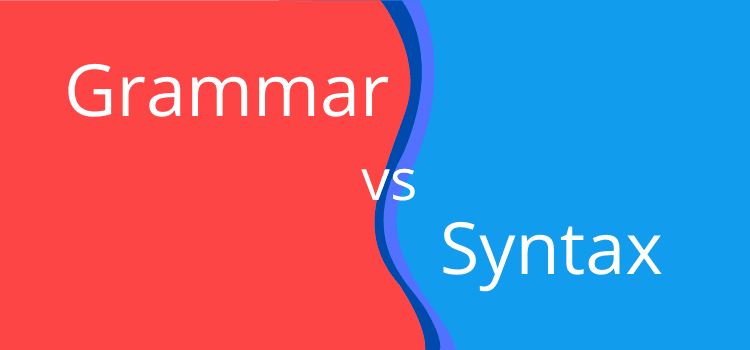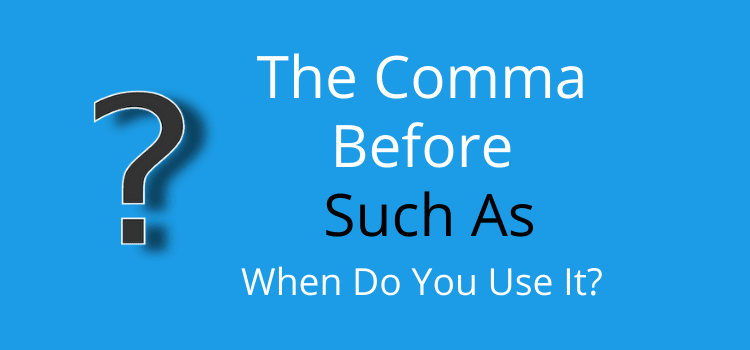
What’s the difference between grammar and syntax?
Grammar is a set of rules governing correct word strings in a language or text.
Syntax is the arrangement or order of words and phrases to create clear, well-formed sentences.
It can be a little confusing at first for new writers or students. But it’s easy once you understand how the two elements structure our language.
Grammar and syntax
These two essential linguistic elements always work hand-in-hand.
In fact, syntax is a part of grammar.
Grammar governs the correct forms of words we use.
But the syntax is all about what can go where in a sentence.
In other words, grammar is quite strict, with defined standards and rules.
However, syntax allows a writer more freedom.
You can use parts of speech, vocabulary, and word order choices.
In every sentence you write, you will use both.
Still not clear?
Let’s look at some examples to help you understand the difference between syntax and grammar.
Grammar is the rule book
There are many grammar rules.
But the basics are subject and verb agreement, verb tenses, pronoun agreement, and punctuation.
Every sentence needs a subject and verb that agree.
Joe works. (Joe work. – Incorrect agreement)
They work. (They works. – Incorrect agreement)
Mary and Tom dance. (Mary and Tom dances. – Incorrect agreement)
You write. (You writes. – Incorrect agreement)
We usually extend a sentence by adding an object.
Joe works in a bank.
They work in a supermarket.
Mary and Tom dance every Saturday night.
You write novels.
Grammar for complex sentences
We can use clauses, pronouns, and punctuation for more complex sentences.
Joe works in a bank at present, but he would like to change jobs.
They work in a supermarket that is close to their home.
Mary and Tom danced in a competition last week, and they won first prize.
You write novels, and I love reading them.
The grammar is correct in the examples above because every sentence follows the strict rules of agreement and punctuation.
Syntax allows you more freedom
The word syntax derives from French and Latin and means to arrange.
There are many ways you can write a sentence that is grammatically correct but uses variations in syntax.
Here are some examples of how you can use syntax phrase structure to improve, change, or modify a sentence.
The accident almost cost me two thousand dollars.
This sentence is grammatically correct, but the syntax is not.
The word almost should modify the amount of money and not the verb.
But you can form the phrase in other ways to rectify the problem.
The accident cost me almost two thousand dollars.
The cost of my accident was almost two thousand dollars.
As a result of my accident, I’m almost two thousand dollars out of pocket.
Misplaced modifiers like this are one of the most common syntax errors.
Related reading: Periodic Sentence And Anastrophe – What’s The Difference?
Syntax and readability
You often use syntax to make a sentence easier to read and understand.
For example:
Should it be necessary, are you able to work on Saturday?
Can you work on Saturday if necessary?
The first sentence is grammatically perfect, but the second example is much easier to understand.
A writer always has the choice to change or reorder language to suit target readers or reading grades.
To alleviate the risk of road accidents, one should observe the speed limit.
If you obey the speed limit, you will reduce the risk of road accidents.
Road accidents are reduced when you abide by the speed limit.
Syntax is more subjective than grammar, so it is a tool every writer needs to understand and use.
Parallel construction
Another typical example of a syntax problem is the parallel structure of sentences.
Parallelism is when two or more noun phrases or clauses in a sentence should use the same grammatical structure.
I like to read, writing, and listening to music. Incorrect
I like reading, writing, and listening to music. Correct
James enjoys cooking, to knit and sew, which is unusual for a man. Incorrect
James enjoys cooking, knitting, and sewing, which is unusual for a man. Correct
You can see that in the correct sentences, each word in the list uses the same grammatical form.
Fixing sentences
Incomplete sentences occur when a subject and verb are missing.
They are sometimes called sentence fragments.
Very often, it happens when you add a dependent clause and fail to connect it correctly.
Lara didn’t go to work yesterday. Due to illness. Incorrect.
In this example, the second sentence is incomplete. It needs to be joined correctly to the first sentence.
But there are different options you could use.
Due to illness, Lara didn’t go to work yesterday.
Lara didn’t go to work yesterday because of illness.
Because of illness, Lara didn’t go to work yesterday.
Here’s another example.
We had an enjoyable time. In spite of the poor weather. Incorrect.
In spite of the poor weather, we had an enjoyable time.
We had an enjoyable time, even though the weather was poor.
We had an enjoyable time. However, the weather was poor.
For most writers, it’s about a sentence sounding or reading right, and the arrangement of words comes quite naturally.
Even though the examples above are simplistic, I hope they will help you understand the basics.
Summary
The easiest way to understand grammar and syntax is to remember them this way.
One is a set of rules, and the other is about choice.
When it comes to grammar, you always need to check that you are correct.
If not, apply the correct grammatical rules to your writing.
Because it is relatively mechanical, you can use one of the many free online grammar tools available now to help you check your accuracy.
But when it comes to syntax, checking is not as easy.
You have much more freedom to experiment, change, and modify your writing.
You can write to suit not only your readers but also to refine your unique writer’s voice and tone.
One of my favorite syntax examples is this one short sentence with a change of placement of the frequency adverb.
Often, I don’t drink whiskey.
I often don’t drink whiskey.
I don’t often drink whiskey.
I don’t drink whiskey often.
How much do I drink in each sentence, and what proportion of it is whiskey?
The placement of one word can make all the difference to what you are trying to say.
Related reading: Positive Writing Is Always Better Than The Negative
Share This Article



Thank you so much for this concrete advice. So many of us don’t know what’s off in a sentence. Even when it’s grammatically correct, it’s the syntax that can make for tedious reading. You’ve given us great examples here.
Thanks for this interesting article, Derek. I never thought about this before.